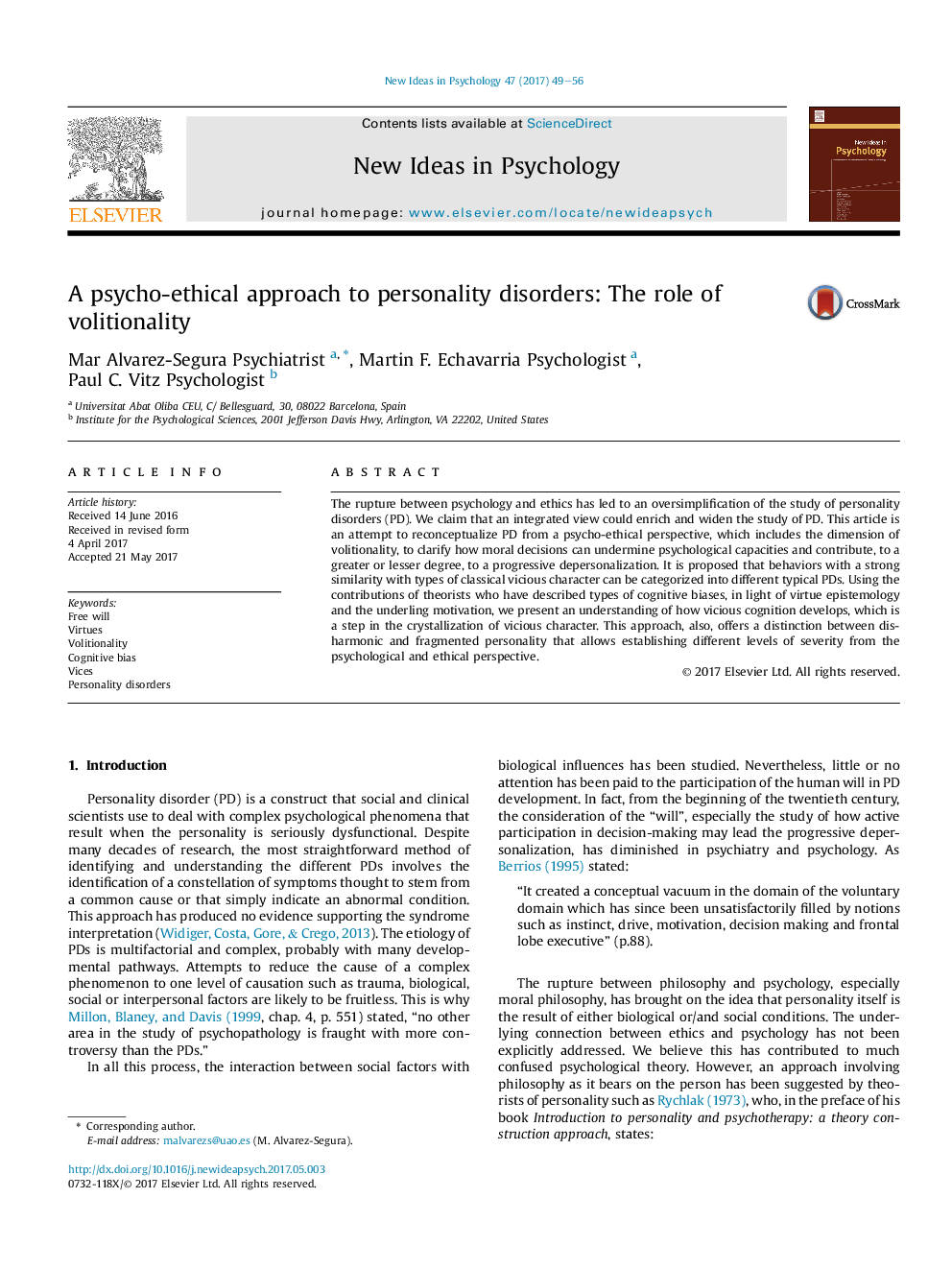| Article ID | Journal | Published Year | Pages | File Type |
|---|---|---|---|---|
| 4932956 | New Ideas in Psychology | 2017 | 8 Pages |
Abstract
The rupture between psychology and ethics has led to an oversimplification of the study of personality disorders (PD). We claim that an integrated view could enrich and widen the study of PD. This article is an attempt to reconceptualize PD from a psycho-ethical perspective, which includes the dimension of volitionality, to clarify how moral decisions can undermine psychological capacities and contribute, to a greater or lesser degree, to a progressive depersonalization. It is proposed that behaviors with a strong similarity with types of classical vicious character can be categorized into different typical PDs. Using the contributions of theorists who have described types of cognitive biases, in light of virtue epistemology and the underling motivation, we present an understanding of how vicious cognition develops, which is a step in the crystallization of vicious character. This approach, also, offers a distinction between disharmonic and fragmented personality that allows establishing different levels of severity from the psychological and ethical perspective.
Related Topics
Social Sciences and Humanities
Psychology
Developmental and Educational Psychology
Authors
Mar (Psychiatrist), Martin F. (Psychologist), Paul C. (Psychologist),
